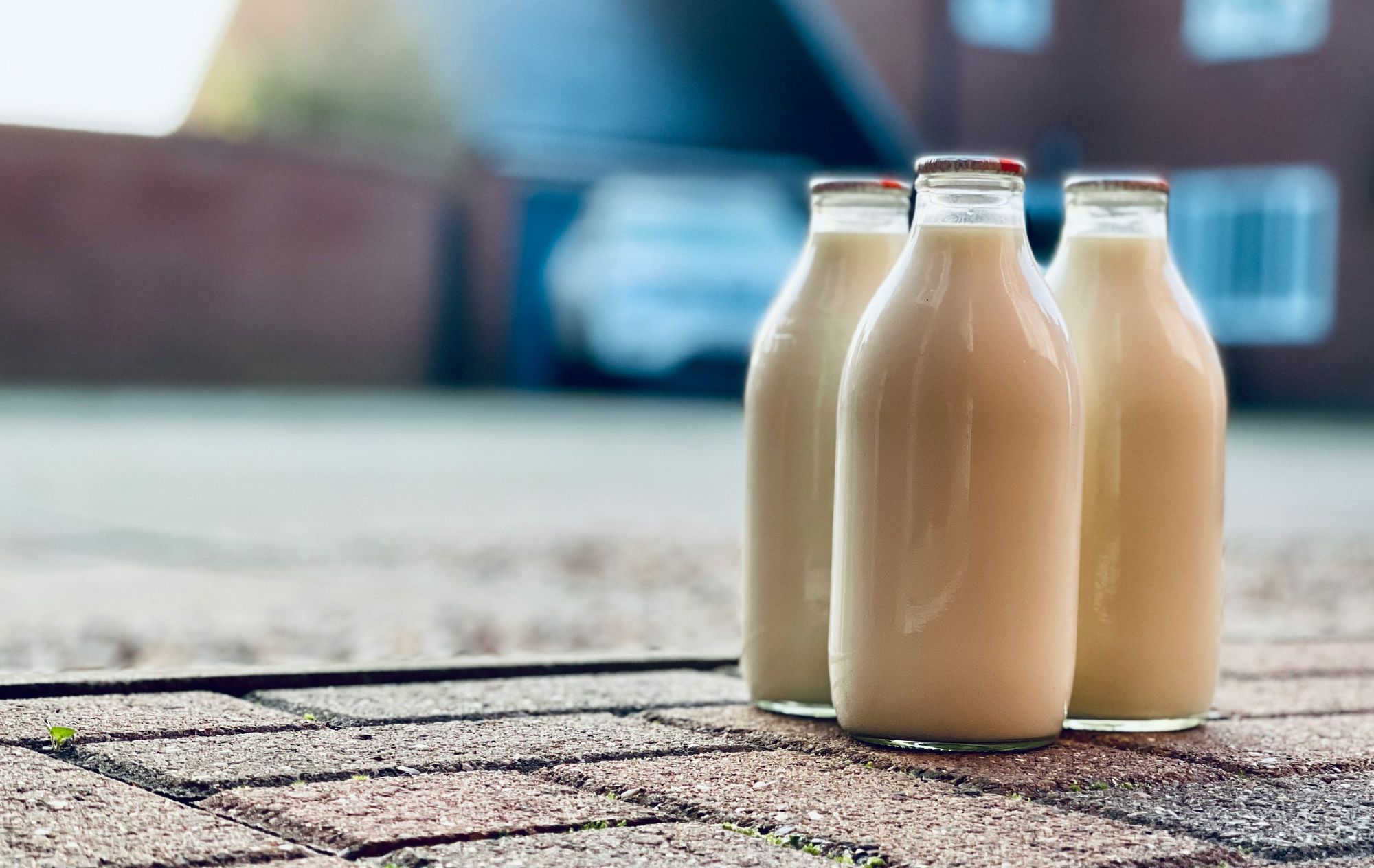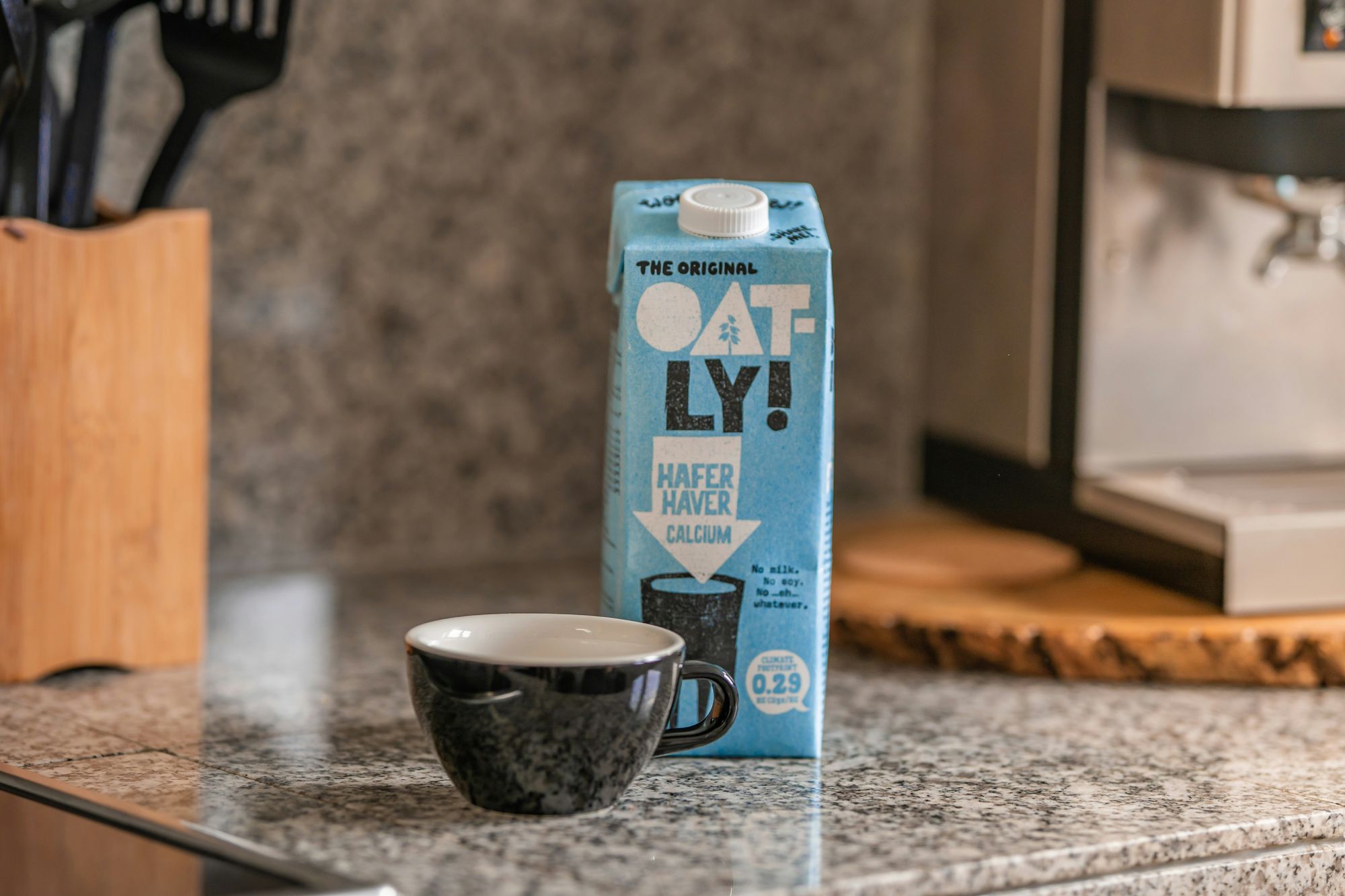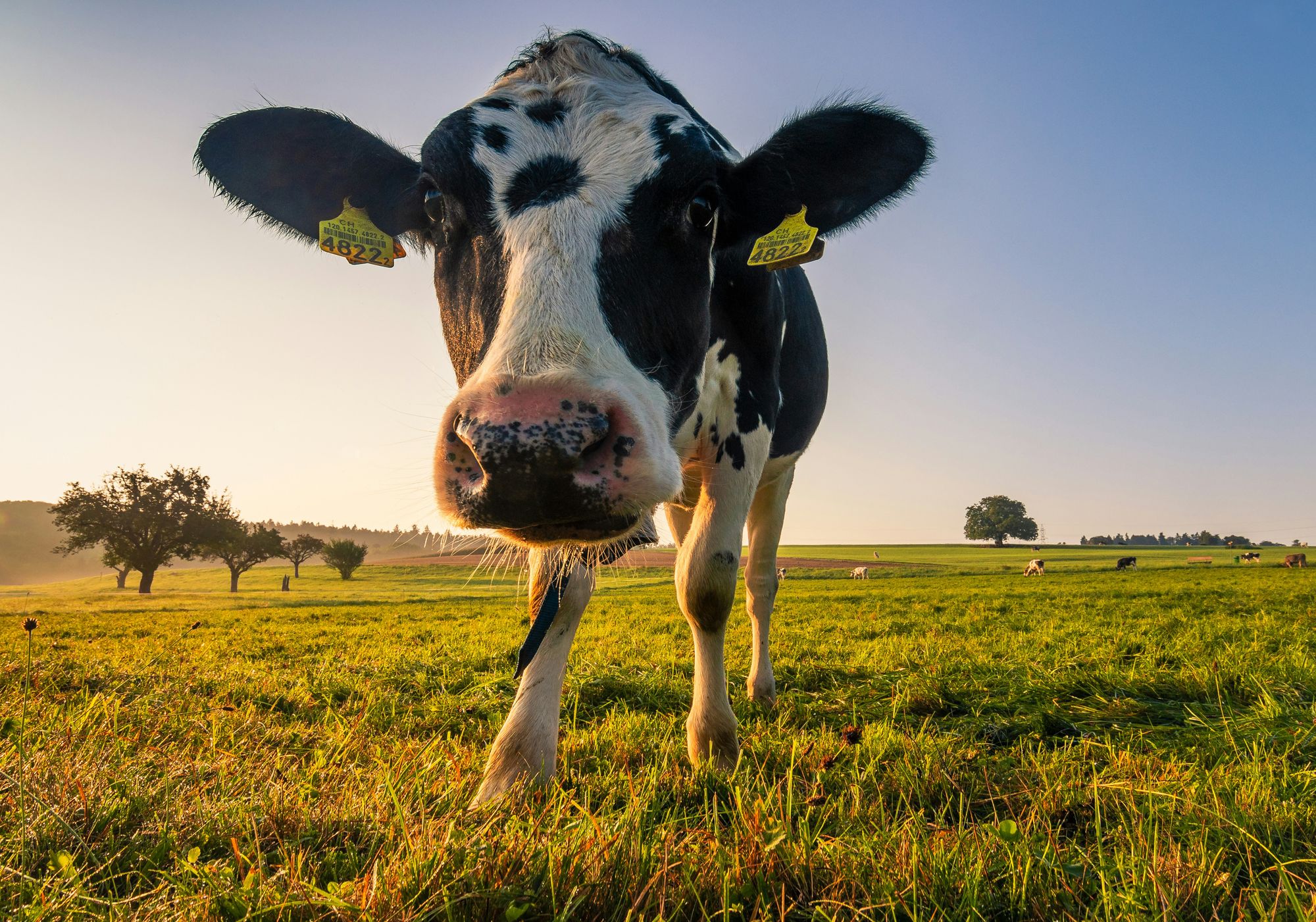Milk – Nature’s Perfect Food – Or Is It?

Milk - the white stuff... although perhaps shades of cream through to oaty-beige depending on your ‘milk’ drinking preferences these days!
So where are we with milk and our stance on what is good for us and good for the planet?
There are so many articles debating milk, the pros and cons of dairy versus plant based alternatives let’s take a look and see if we can come up with our thoughts and suggestions - thinking about people, planet and pocket - the Tale of a Teaspoon way!
A few years ago – plant based milks were ‘the thing’ and you probably couldn’t stand in a café or coffee shop without hearing the words ‘an oat latte please’ and whilst this is still often the case it seems that dairy, specifically whole fat dairy, is making a bit of a comeback.
There is a movement, across the food and drink industry that we should all be ‘going back to basics’ – cooking simple food from fresh, locally sourced ingredients and ditching, whenever and wherever possible, ultra processed foods – hear hear to that!
With this latter point in mind, the nutritional profile of plant-based milks, particularly oat milk, has come under the spotlight. Some nutritionists have declared oat milk as protein-deficient and bearing the nutritional equivalence to a glass of sugary water. Now, this may seem a little extreme but when choosing a non-dairy milk substitute, you should keep in mind that many of these products do contain added ingredients like sweeteners, artificial flavours, preservatives and thickeners. Read labels, compare brands and choose a product with limited ingredients, ideally sticking to unsweetened varieties to limit the amount of added sugar in your diet.

Of course the apparent favourite of the plant based milk world ‘oat’ milk is just one of many alternatives. Others include Almond, Coconut, Soy as well as other less known options such as Cashew, Hemp, Pea and Rice milks. And it seems the general consensus that some of these alternatives are better for us than others – soy has a similar amount of protein to cow’s milk and nut based milks such as almond are less sugary than oat so less likely to cause those glucose spikes.
The fact is that many of us are actually quite intolerant to dairy milk - according to the US National Library of Medicine, 65 per cent of the world’s population has difficulty digesting milk as they are unable to properly digest lactose, a sugar found in milk and dairy products. So these alternatives form an important part of the diet of those who are allergic or intolerant to dairy – allowing them to continue to enjoy ‘dairy type’ products in the form of milk, butter, cheese, yoghurt etc.
And now, with such items in every supermarket and many coffee shops and restaurants they are readily available for those who both need and choose the alternatives.

Certainly those in the ‘choosing plant based alternatives’ camp would say another good reason to swap is that cows are a huge contributor to climate change. The global temperature has risen over the years due to excess greenhouse gases - among the most common are methane and carbon dioxide. When cows 'burb and fart' they do release significant amounts of methane as part of their digestive process and there is little doubt this is contributing to the impact on the environment. However, not all the blame of greenhouse gases should be left at a cow's hooves (!) cars emit considerable carbon dioxide and out of all greenhouse gases, carbon dioxide makes up the majority.
In the interest of balance, plant milks also have an environmental footprint – almond production in particular is water-intensive, which can be harmful in water-scarce areas. However, it doesn’t come close to the impact of the dairy industry. And despite its rough ride on the nutritional stakes - oat milk is deemed to be the least impactful to the environment.
There are of course, further, ethical issues arising from cows’ milk - just like humans, cows must give birth in order to produce milk and breeding every single year gives their body little to no break from the cycle of carrying a baby and producing milk. Many believe that whether or not they're on an intensive, free range, or organic farm, every single one will have that same process. This may be the case in terms of the reproductive cycle but - of course, if you are buying dairy milk from an industrial farm then the environment and animal welfare are huge issues.
If you buy milk from an organic or regenerative dairy farm, this can actually be beneficial for the environment and biodiversity. Properly managed under the right confluence of conditions, cattle, and indeed other livestock can help mitigate degraded soils and restore healthy ecosystems. The cows can be part of a system that helps to draw carbon from the atmosphere and store it deep in the soil - carbon sequestration. And, if fed purely on grass rather than grains cows would produce less methane - so these two points alone would go some way to reducing our greenhouse gases.
In terms of nutritional profile, cows’ milk contains more protein and calcium per gram than all plant-based alternatives – it is packed with important nutrients like protein, calcium, phosphorus, B vitamins, potassium and vitamin D. And if purchased from the Milkman or ideally your local 'milk vending machine' then it has a far lower carbon footprint.

In starting to summarise, where are we? To an extent we have gone round in circles – or certainly flipped from one ‘milk’ to the other.
It is clear, your milk choice is not simply a question of health and goodness but also of weighing up the environmental and ethical concerns about them. What we eat is a personal choice but it’s important we all make informed decisions.
So perhaps the old adage – if you are not allergic or intolerant to dairy – is ‘everything in moderation’. Try cereal with locally sourced organic dairy milk and your morning latte with oat milk. Cook with almond milk to make a delightfully nutty bechamel sauce and try coconut milk as the perfect foundation for creating a thick, creamy hot chocolate with a slightly sweet vanilla flavour. And maybe just maybe we should consume a little less. If we all reduced our milk intake - whether dairy or other - it would mean less production which would have a strong and positive impact on the environment. So consider, diluting milk with a splash of water for your cereal, taking the occasional tea and coffee black. Use Less, Buy Less and Waste Less!
Where do you stand on ‘the white stuff’ … as always we would love to hear your thoughts and views - @thetaleofateaspoon
